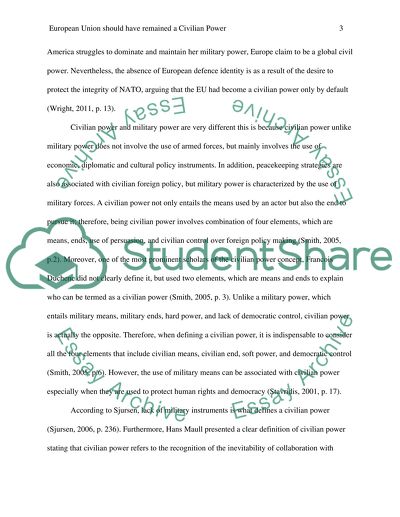Cite this document
(“The EU should have remained a civilian power. Discuss Essay”, n.d.)
The EU should have remained a civilian power. Discuss Essay. Retrieved from https://studentshare.org/history/1488612-ypthe-eu-should-have-remained-a-civilian-powery
The EU should have remained a civilian power. Discuss Essay. Retrieved from https://studentshare.org/history/1488612-ypthe-eu-should-have-remained-a-civilian-powery
(The EU Should Have Remained a Civilian Power. Discuss Essay)
The EU Should Have Remained a Civilian Power. Discuss Essay. https://studentshare.org/history/1488612-ypthe-eu-should-have-remained-a-civilian-powery.
The EU Should Have Remained a Civilian Power. Discuss Essay. https://studentshare.org/history/1488612-ypthe-eu-should-have-remained-a-civilian-powery.
“The EU Should Have Remained a Civilian Power. Discuss Essay”, n.d. https://studentshare.org/history/1488612-ypthe-eu-should-have-remained-a-civilian-powery.


